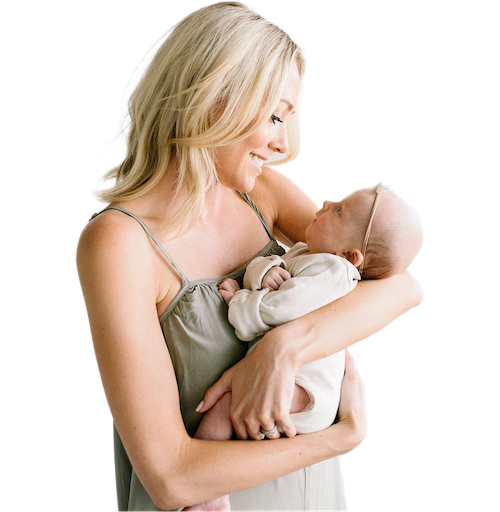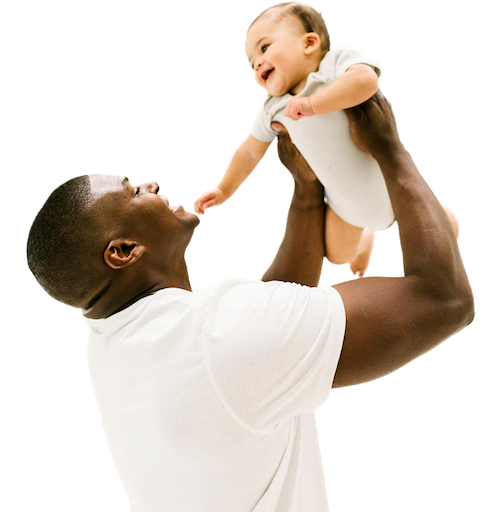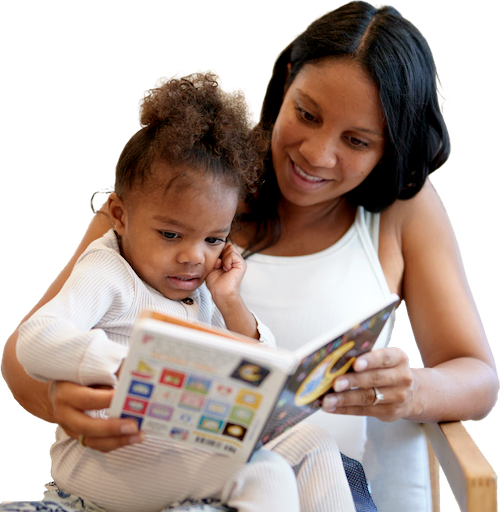Babies at 8-10 months are learning so many exciting new skills. Unfortunately, that can also come with some sleep struggles. You may have heard this called the 8, 9, or 10 month sleep regression. Let’s talk about it.
What is a sleep regression?anchor
When a baby’s brain is going through huge developmental changes, sleep can be impacted. Here is what I want you to know: Sleep regressions are a sign of developmental progressions. Your baby’s brain is working hard!
Can I talk you through my approach to sleep regressions?
Are sleep regressions based in science?anchor
When a baby’s brain is busy learning new things or developing, sleep can take a back seat.(6, 8) Also, as babies grow, their sleep needs change.(9,10,11) This means a baby may begin to struggle with more night wakings, with nap refusals, and with falling asleep. When sleep is interrupted this way, it can feel like everything is moving backwards, hence the term “sleep regression.”
However, sleep isn’t actually going backwards or permanently “regressing.” Sleep skills don’t just disappear at magical ages. When I talk about common sleep regression ages, I’m talking about ages when babies and toddlers often experience periods of development (physical, cognitive, social) or commonly have a change in sleep needs (Think fewer naps, more awake time, etc..). But truly, all babies develop at their own pace, meaning sleep could be interrupted because of new skills, cognitive progressions, or physical shifts at any age.
What are some signs of the 8-10 month sleep regression? anchor

The 5–24 Month Collection
stars ( reviews)
If sleep seems to be falling apart in the middle of this regression, please know that you don’t have to just wait it out and hope for the best. My 5-24 Month Collection will teach you a customizable, step-by-step plan to help your baby sleep independently for 10-12 hours overnight and take restorative naps while remaining emotionally connected. There's no need to wait, you can start now.
Learn MoreA sleep regression can look different for every baby depending on their personality and development. So how do you know if these new behaviors are a sign your baby is going through the 8-10 month sleep regression? Here are a few of the common signs parents experience:
Your 8 month old cries and becomes increasingly upset during her bedtime routine.
Your 9 month old is fussy all the time and won’t sleep unless you hold him.
Your 10 month old won’t nap or is taking a long time to settle down/fall asleep for naps.
Your 8 month old is starting to wake up every 2 hours at night when middle-of-the-night wakings weren't a problem before.
Your 9 month old cries every time you leave the room during naps or bedtime.
Your 10 month old’s naps are becoming shorter and/or more disrupted.
You’ve noticed a change in sleep patterns that simply feels “off.”
If you haven’t transitioned your 8, 9, or 10 month old to 2 naps a day, now would be the time to do this. It is possible, if your baby is still taking 3 naps, this could be the reason for the sleep issues you’re experiencing. If your baby is taking more than 2 naps because naps are short, it’s time to stretch those wake windows and drop a nap.
What causes the 8-10 month regression? anchor
So much development happens during this time! There are major cognitive, emotional, and physical milestones that are typically reached between 8-10 months.
Around 8-10 months, your baby might be learning things like sitting up, crawling, pulling up, babbling, stacking, and more. He might also be learning the important idea of object permanence. Object permanence is the understanding that things exist when you can’t see them, which can lead to a surge of separation anxiety.
As your baby is learning these new skills, sleep can often be disrupted.
Teething could also be a culprit that is disrupting your baby’s sleep. If your baby is teething, we want to meet any physical needs while remaining as consistent as possible. If your little one needs some extra comfort for a night or two, this typically does not derail a solid sleep foundation. Having a strong sleep foundation before teething starts can make a big difference! If you are struggling with sleep, please know my 5–24 Month Collection can help.
Keep in mind that it’s normal to see an increase in distracted eating around 8-10 months, which can also affect sleep. So make sure your baby’s caloric needs are met during the day since it’s so important for consolidated night sleep.
Expert Tip: You may hear that a 4-hour feeding schedule is best at this age, but my recommendation is to continue to offer breast or bottle feedings every 2.5-3.5 hours according to your baby’s hunger cues.
Can you sleep train during the 8-10 month regression? anchor
Yes, you can sleep train during the 8-10 month regression. It’s the perfect time for consistency to support healthy sleep. If you need help with sleep training, I have a class for you. In the 5–24 Month Collection, I’ll walk you step-by-by step through an emotionally-connected, holistic, and fully-customizable approach to sleep training. It also includes videos where I’ll give you practical guidance for regressions, transitions, and so many other sleep challenges.
How long does the 8-10 month sleep regression last?anchor
Sleep regressions are temporary setbacks lasting from a few days to several weeks. How you respond to sleep struggles during this time can make a huge difference in minimizing the effects of a regression.
How can I help my 8, 9, or 10-month-old baby with the 8-10 month regression? anchor
There are a few ways you can help:
Practice new skills during awake time.anchor
Encourage lots of floor time so your little one can scoot, crawl, pull up, and stack toys. The more you practice during the day, the less exciting those skills seem when your baby needs to sleep.
Pay attention to bedtime.anchor
With a baby who is on the move, it’s easy to miss those normal sleepy cues, but preventing overtiredness is still so important. Aim for about 3.5 hours of awake time before bed: age-appropriate wake windows will set your night up for success.
You'll also want to maintain a consistent bedtime routine to help prepare that active body for sleep.
Continue to prioritize restful daytime sleep.anchor
So much is going on in your baby's brain right now, which means that naps and night sleep are both vital. A consistent (yet flexible) daily routine is important. If you're not sure where to start, I can help you create an age-appropriate sleep schedule for your baby.
Understand how your baby thinks.anchor
Developing object permanence can often lead to separation anxiety. This can be hard for your mama or daddy heart, but this is actually a very positive developmental milestone for your 8, 9, or 10 month old! Check out this blog on separation anxiety for ideas on supporting your baby as they learn about object permanence.
Stay consistent.anchor
Don’t start new habits or patterns that you don’t want to maintain. This regression may be tough for several days, but the more consistent you are, the more quickly it will pass.
If your nights and naps are rough beyond just a few days, I have a class for you. anchor
The 5–24 Month Collection will give you a step-by-step plan for restful nights and solid naps through ALL regressions.
Read what parents are saying:
References
11 Sources
Burnham et. al. (2005). Nighttime sleep-wake patterns and self-soothing from birth to one year of age: a longitudinal intervention study.
Gradisar et al. (2016). Behavioral Interventions for Infant Sleep Problems.
Goodlin-Jones et al. (2005). Night Waking, Sleep-Wake Organization, and Self Soothing in the First Year of Life.
Mindell et. al. (2009). Developmental aspects of sleep hygiene: Findings from the 2004 National Sleep Foundation Sleep in America Poll.
A.D.A.M. Medical Encyclopedia. MedlinePlus. (2022). Separation anxiety in children.
Scher A. & Cohen D. (2015) Sleep as a mirror of developmental transitions in infancy: the case of crawling.
Mindell J. et al. (2015) Bedtime routines for young children: a dose-dependent association with sleep outcomes.
Healthy Children, American Academy of Pediatrics. (2022). Separation anxiety and sleeping.
Mindell J. et al. (2016). Development of infant and toddler sleep patterns: real-world data from a mobile application.
Paruthi, S. et al. (2016). Recommended Amount of Sleep for Pediatric Populations: A Consensus Statement of the American Academy of Sleep Medicine.
Wielek, T. et al. (2019). On the development of sleep states in the first weeks of life.
Keep in mind that the information and content on this blog is for informational purposes and should not be considered medical advice. If you have questions about your child, please reach out to your doctor.








